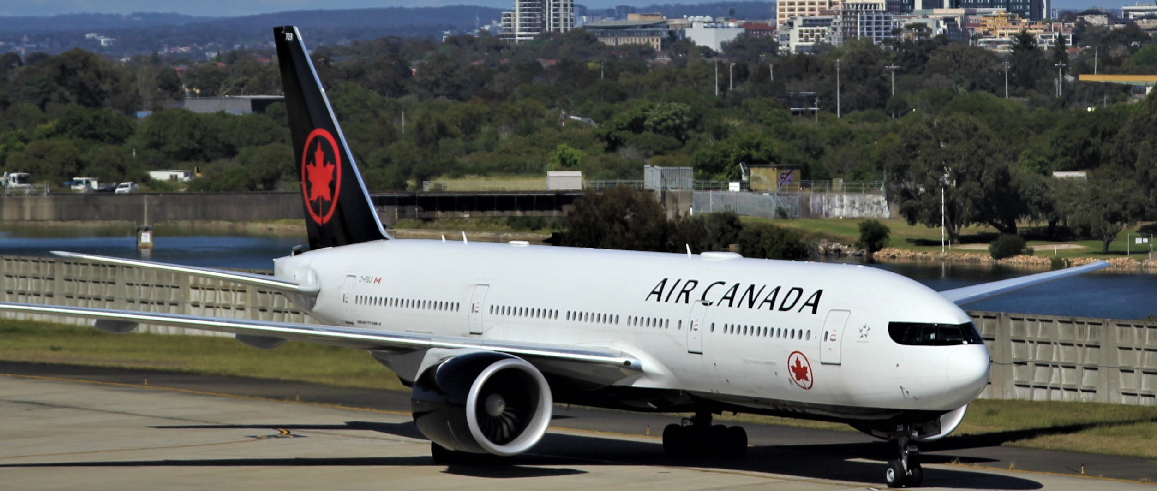You are using an outdated browser. Please upgrade your browser to improve your experience.
Forgot Password?
You can reset your password here.

Email was Sent
Please check Your email
Come to Canada
Get a free e-book to get you started on your journey!
We take the security of your personal information very seriously. All data and information disclosed on this site are highly confidential. Once you personal data is stored, we employ highly secure servers that restrict access to potential third parties.
Sign Up To Our Newsletter Today & Get a Free e-Book

Canadianvisa.org
David Allon Fact Checker David Allon is a fact-checker and a professional and knowledgeable RCIC consultant with a passion for migration and international policies https://www.canadianvisa.org/about-us/experts/david_allon
We Make Immigration Simple
2022-01-26T12:52:35
2023-08-07T05:06:00
A Canadian Business Visitor Visa allows you to work in Canada, grow your business, invest, or advance your business relationships.
Canada Immigration
Express Entry
Comprehensive Ranking System
Express Entry Draw
Invitation to Apply
Express Entry Profile
Immigrate From Your Country
Immigrate from India
Immigrate from the UK
Immigrate from Australia
Immigrate from the Philippines
Immigrate from Mexico
Immigrate from Kenya
Immigrate from Ghana
Immigrate from Nigeria
Immigrate from the UAE
Immigrate from Saudi Arabia
Immigrate from Jamaica
Immigrate from Pakistan
CRS Calculator
Professional and Skilled Worker
Quebec Skilled Worker Program
Federal Skilled Worker Program
Federal Skilled Trades Program
Canadian Experience Class
Work in Canada
Temporary Foreign Work Permit Program
International Mobility Program
Global Talent Stream
Labour Market Impact Assessment
What is an NOC Code?
How to Apply For Jobs in Canada
How to Apply for a Canada Work Visa
Work Visa Types
Nafta Work Permits
Ceta Work Permit
Bridging Open Work Permit
Canada UK Trade Agreement
Comprehensive and Progressive Agreement for Trans-Pacific Partnership
Canada United States Mexico Agreement
In-demand Occupations
Manitoba In-Demand Jobs in 2023
New Brunswick in-Demand Jobs in Canada in 2023
Newfoundland & Labrador In-Demand Occupations in 2023
Northwest Territories In-Demand Jobs in 2023
Nova Scotia In-demand Jobs in Canada 2023
Prince Edward Island In-Demand Occupations 2023
Quebec In-demand Jobs in 2023
Saskatchewan In-demand Jobs in Canada 2023
Yukon In-Demand Jobs in 2023
Alberta In-Demand Occupations for 2023
Ontario In-Demand Occupations in 2023
British Columbia In-Demand Occupations for 2023
Provincial Nominee Program
Alberta Accelerated Tech Pathway
British Columbia
British Columbia Tech Pilot
Manitoba International Education Stream
New Brunswick
Nova Scotia
Northwest Territories
Newfoundland and Labrador
Ontario Tech Pilot
Ontario International Education Stream
Prince Edward Island
Saskatchewan
Family Sponsorship
Spousal and Common-Law Partner Sponsorship
Spousal and Family Sponsorship
Parents and Grandparents Sponsorship
- Business Immigration
Self-Employed Program
Investor Visa
Entrepreneur Visa
- Business Visitor Visa
Study in Canada
University List
University of British Columbia
British Columbia Institute of Technology
McGill University
Simon Fraser University
Vancouver Film School
Fairleigh Dickinson University
York University
University of Toronto
University of Waterloo
University of Alberta
Queen’s University
University of Calgary
University of Victoria
How to Get a Canada Study Permit
How to Extend your Canada Study Permit
Student Life in Canada
Student Direct Stream
Work in Canada as a Student
Post-Graduate Work Permit
Study Permit for Visa Partners
Designated Learning Institutions (DLI)
How to Prepare for an IELTS Exam
Canada Education System
Levels of Education in Canada
Pilot Programs
The Atlantic Immigration Pilot
The Rural and Northern Immigration Pilot
The Agri-food Pilot
The Home Care Provider Pilots
Accreditations and Assessments
Education Credential Assessment
Work Accreditation
Red Seal Certification
Visitor's Visa
Electronic Travel Authorization (eTA)
Temporary Visa
Caregiver Visa
Working Holiday Visa
Permanent Residency
Canadian Immigration Processing Fees
Canadian PR Card
Canadian Citizenship
How to Apply for Canadian Citizenship
Requirements for Becoming a Canadian Citizen
Denied Entry to Canada
Temporary Resident Permit
- Canada Immigration Programs
Updated: August 7th, 2023
Reviewed by David Allon

Reviewed by:
David Allon
A professional and knowledgeable RCIC with a passion for migration and international policies. He will ensure that you are provided with the best immigration service and business guidance on your journey to Canada.
The Great White North has a booming economy , which makes it a popular destination for business engagement. Canada business visitors are usually allowed to stay in the country for just a few days or even a maximum of six months. It should be noted that business visitors and business people are two different things, as the latter are allowed to work in Canada under a free trade agreement. If you’d like to travel to Canada as a business visitor, we’ve put together a breakdown of everything you’ll need to know.

Who is Classified as a Canadian Business Visitor?

According to Immigration Refugees and Citizenship Canada , you are seen as a business visitor if:
- You enter Canada to partake in international business deals but do not form part of the Canadian labor force
- You enter the country on a temporary visit to explore possibilities for expanding your business
- You are pursuing investment opportunities in Canada
- You are looking to expand your business network
How to be Eligible as a Canadian Business Visitor
Canadian Business Visitors may visit Canada to observe site visits. Alternatively, a Canadian company may have invited you to Canada for training in product use, sales, or other functions related to a business transaction. As a business visitor, who wants to apply for a Canadian Business Visitor Visa, you must show that:
- You plan to stay for less than six months;
- You do not plan to enter the Canadian labor market;
- Your main place of business, and source of income and profits, is outside of Canada;
- You have documents that support your application;
- You meet Canada’s basic entry requirements with a valid travel document, such as a passport;
- You have enough money for your stay and to return home;
- You plan to leave Canada at the end of your visit; and
- You are not a criminal, security, or health risk to Canadians
Activities You Can Carry Out as a Canadian Business Visitor

When entering the land of maple leaves as a Canadian Business Visitor, you will be allowed to engage in several activities, such as:
- Procuring goods or services for a business or government of another country, or collecting orders for goods or services for your own business
- Attending events, such as meetings, conferences, conventions or trade fairs
- Providing post-sale services
- Attending training provided by the Canadian headquarters of the company you work for
- Providing training to staff at a Canadian branch of an international company
- Getting training from a Canadian supplier of goods you purchased
Note: The Canada-United States-Mexico Agreement (CUSMA) allows U.S. or Mexican nationals to partake in activities such as research, marketing, and general services.
Things You’ll Need For Entry to Canada as a Canadian Business Visitor
To be allowed into Canada, you will be required one of the following:
- A Canada Visitor Visa
- An electronic travel authorization (eTA )
- Other types of documentation, such as a valid United States passport or validation of proof of status in the US, like a green card or a valid passport from your country of origin
Additional Documents Required For Canadian Business Visitors
When you travel to Canada as a business visitor, you must make sure you also have the following documents on you at the port of entry:
- Your passport that will be valid for the period of stay in Canada
- Your Canada visitor visa passport you travel with must be the same one used when you applied for one
- A valid green card, should you be a lawful US permanent resident
- A valid passport from your country of origin
- Document supporting your visit to Canada such as a letter of support from the Canadian parent company or an invitation from your Canadian hosts
- Warranties, service agreements, or contracts
- Contact information of your Canadian business hosts
- Proof of funds for the duration of your stay in Canada and your trip home
Business Pathways to Canadian Permanent Residency

While traveling to Canada as a Canadian business Visitor, you may find that you’d like to stay in the country more permanently. Fortunately there are many great pathways to Canadian Permanent residency for business-minded individuals. Here's another option to explore.
Start-up Visa Program
Canada’s Startup Visa Program , a general Business Immigration or "Investor" Visa program, allows you to immigrate to the country and set up a business here. You’ll have to meet all requirements set to be eligible. The business you start must be innovative, able to employ Canadians, and compete globally.
Do Business Visitors Also Need a Work Permit to Work in Canada?
If you’re doing business activities related to your job back in your country of origin, you won’t need a work permit. However, if you plan to stay longer than six months or will carry out business activities such as managerial, production, or secretarial work, then you’ll need to acquire a temporary resident visa.
Do I Need a Medical Exam if I go to Canada as a Business Visitor?
Usually, a medical exam is not needed. However, it will be needed if you are going to work within an occupation that needs the protection of public health, such as workers in healthcare settings, workers in primary or secondary school settings, or patient attendants in nursing and geriatric homes.
Get your free e-book today!
Want to learn more about Canada? Subscribe to our newsletter and get an e-book on Canadian immigration filled with mesmerizing sights of Canada!
CanadianVisa.org is a private recognized immigration agent and is not affiliated with the Canadian Government. Privacy policy
Back To Top
- Free Phone Consultation +1 (514) 989-9700
- Immigrate to Canada
- CRS Score Calculator
- Express Entry Pool of Candidates
- Canadian Experience Class
- Federal Skilled Worker (FSW) Program
- Federal Skilled Trades
- Express Entry Draw
- When is the Next Express Entry Draw?
- Invitation to Apply (ITA)
- Electronic Application for Permanent Residence (eAPR)
- Proof of Funds for Express Entry
- Latest PNP Draws in Canada
- Farm Stream
- Alberta Express Entry
- Alberta Accelerated Tech Pathway
- Alberta Opportunity Stream
- Graduate Entrepreneur Stream
- Foreign Graduate Entrepreneur Stream
- Skills Immigration Stream
- BC PNP Tech
- Entrepreneur Immigration Stream
- Farm Investor Pathway
- Skilled Workers in Manitoba
- Skilled Workers Overseas
- International Education Stream
- Business Investor Stream
- Express Entry Labour Market Stream
- Entrepreneurial Stream
- Post-Graduate Entrepreneurial Stream
- Skilled Worker Applicants with Employer Support
- New Brunswick PNP – Information Sessions
- Express Entry Skilled Worker Category
- Skilled Worker Category
- International Graduate Category
- International Entrepreneur Category
- International Graduate Entrepreneur Category
- Priority Skills NL: In-Demand Academic Path
- Priority Skills NL: In-Demand Work Path
- Express Entry
- Employer Driven
- Critical Impact Worker
- Skilled Worker
- Business Driven
- Entrepreneur
- Nova Scotia Demand: Express Entry (Closed)
- Nova Scotia Experience: Express Entry
- Entrepreneur Category
- Physician Stream
- Nova Scotia Labour Market Priorities
- Nova Scotia Labour Market Priorities for Physicians
- Occupations In Demand
- Ontario’s Express Entry Streams
- Employer Job Offer
- Masters Graduates
- PhD Graduates
- Regional Immigration Pilot
- PEI PNP Express Entry
- Business Impact
- Work Permit
- Labour Impact
- Skilled Worker in PEI
- Skilled Worker Outside Canada
- Critical Worker
- International Graduate
- International Skilled Worker
- Saskatchewan Experience
- Saskatchewan Entrepreneur and Farm
- Yukon Express Entry
- Business Nominee
- Yukon Community Pilot
- Immigrate to Quebec
- Regular Skilled Worker Program (RSWP)
- Quebec Experience Program (PEQ)
- Quebec Entrepreneur Program
- Quebec Self-Employed Worker Program
- Quebec Investor Program – QIIP
- Certificat de Selection du Quebec (CSQ)
- Quebec Immigration FAQ
- Confirmation of Permanent Residence (COPR)
- Permanent Resident Card (PR card)
- Permanent Resident Card Renewal
- Permanent Resident Travel Document
- Residency Obligations
- Canadian Experience Class (CEC)
- Atlantic Immigration Program
- Rural and Northern Immigration Pilot
- Agri-Food Pilot
- Home Child Care Provider Pilot
- Home Support Worker Pilot
- Past Caregiver Programs
- Canada Immigration FAQ
- Moving to Canada from the USA
- Work in Canada
- Business Visitors
- Labour Market Impact Assessment (LMIA)
- Facilitated LMIA (Quebec) List of Occupations
- Canada Global Talent Stream (GTS)
- Intra-Company Transfers
- CUSMA (formerly called NAFTA) Work Permit
- Working with CSQ
- CETA Work Permits
- Post-Graduate Work Permit
- International Experience Canada
- Spouse Open Work Permit (SOWP) Canada
- Bridging Open Work Permit (BOWP) Canada
- Job Search Tool
- Social Media Presence Guide
- Canadian Resume Guide
- For Employers
- Study & Immigrate in Canada
- Canadian Designated Learning Institutions (DLI)
- Levels of Study
- Student Direct Stream (SDS) Canada
- Certificat d’acceptation du Quebec (CAQ)
- Refusals and Appeals
- International Students in Canada
- Extend a Study Permit
- Quebec Health Insurance Plan for International Students
- Student Accommodation
- Work While Studying
- International Students: Spouse and Family Dependent Visa
- Permanent Residence (PR) for international students
- Our International Student Program
Sponsorship
- Canada Sponsorship
- Inland Sponsorship
- Outland Sponsorship
- Spousal Sponsorship Quebec
- Child or Other Dependant Sponsorship
- Super Visa Canada
- Minimum Necessary Income (MNI)
- Canada Sponsorship FAQ
Business Immigration
- Federal Investor Program (Terminated)
- Federal Venture Capital (Closed)
- Federal Entrepreneur Program (Terminated)
- Start-Up Visa Canada
- Federal Self-Employed
- Quebec Self-Employed
- About our Business Immigration Team
- Our Canadian Immigration Services
- Criminal Inadmissibility
- Temporary Resident Permit (TRP)
- Medical Inadmissibility
- Legal Opinion Letters
- DUI Convictions
- Criminal Rehabilitation
- Citizenship Requirements
- Citizenship Application
- Citizenship FAQ
- Canadian Economy
- Taxation in Canada
- Newcomers Services
- How to Find Accommodation in Canada
- Visitor Visa
Business Visitor Visas
- electronic Travel Authorization (eTA)
- Canadian Immigration News & Updates
- Canadian Immigration Blog & Resources
- CLB Language Converter
- Visiting Canada Tool
- What is a NOC Code in Canada?
- How to Write a Reference Letter
- Educational Credentials Assessment (ECA) Guide
- Canadian Cover Letter Guide
- Canadim’s Employment Services
- Canadian Language Benchmark Guide
- Canadian Immigration Glossary
- See all guides & FAQs
- Refugees & Humanitarian
- Canadian Immigration Processing Fees
A business visitor visa in Canada is a temporary travel permit designed for individuals who are planning to visit Canada for business-related purposes. These visitors typically come to Canada for a short duration, ranging from a few days to several weeks, to engage in activities like attending meetings, conferences, or business events.
A business visitor is someone who comes to Canada for international business activities, but does not directly enter the Canadian labour market.
Eligibility Criteria for Business Visitors Visa
To qualify as a business visitor to Canada, several specific criteria must be met, ensuring the visit is strictly for business purposes without integrating into the Canadian labor market.
- Firstly, the individual must plan a stay of less than six months.
- Secondly, there should be no intention to enter the Canadian labor market. This is evidenced by maintaining the main place of business.
- the source of income and profits, outside Canada.
- Additionally, supporting documents are essential for the application.
- Basic entry requirements for Canada also play a crucial role: having a valid travel document like a passport, possessing sufficient funds for the stay and return, and planning to leave Canada at the end of the visit.
- Importantly, the visitor should not pose any criminal, security, or health risks to Canadians.
If the visit extends beyond six months or involves working in Canada, it falls under the temporary worker category, necessitating a work permit application.
Business Visitor vs Work Permit
Note that a business visitor visa is different from a Canadian work permit . You cannot enter the Canadian workforce as a business visitor. Business visitor visas are intended to allow short-term stays for business activities such as industry conferences, site visits, or training. If you are transferred to Canada by your company or are otherwise employed by a Canadian company, you will need a work permit. You can come to Canada as a visitor to search for Canadian employment.
However, you cannot legally work in Canada without a work permit. If you secure a job offer from a Canadian employer while in Canada on a visitor visa, you must apply for a work permit before you can begin working. Your application must be processed by the Canadian visa office responsible for the country in which you live or are a citizen, so you may be required to leave Canada during the course of your application processing. However, you can legally remain in Canada for as long as your visitor visa is valid.
How to Apply for a Business Visitor Visa
There is no special visa for business visitors to Canada. Business visitors have to follow the normal application procedure for a visitor visa, or TRV, and will need to indicate that they are entering Canada for international business activities. Business visitors may be required to demonstrate proof of their activities to the border services officer at their port of entry. Some business visitors may be visa-exempt, if they are from visa-exempt countries. In these cases, the individual may still need an electronic travel authorization (eTA) if they arrive in Canada by air. Business visitors may bring family members with them to Canada, but each family member must complete their own visitor visa application.
NAFTA Business Visitors
NAFTA , or the North American Free Trade Agreement, reduces barriers between Mexico, the United States, and Canada. Under NAFTA, citizens of these countries can gain quick entry into each others’ countries for temporary business or investment reasons. NAFTA business visitors are one category of business people under NAFTA.
Ready to start?
If you have questions or concerns relating to Business Visitor Visas please contact us and a member of the Canadim Team will be happy to discuss your options.
Related Links
Nafta work permits, electronic travel authorization.
Discover your Canadian immigration options. Get your free assessment now!
Official websites use .gov A .gov website belongs to an official government organization in the United States.
Secure .gov websites use HTTPS A lock ( A locked padlock ) or https:// means you’ve safely connected to the .gov website. Share sensitive information only on official, secure websites.
- Search ITA Search
- Market Overview
- Market Challenges
- Market Opportunities
- Market Entry Strategy
- Regional Markets - Québec
- Aerospace and Defense
- Agricultural Sector
- Defense Equipment
- Information and Communications Technology (ICT)
- Medical Devices
- Additional Important Sectors
- Trade Barriers
- Import Tariffs
- Import Requirements and Documentation
- Labeling/Marking Requirements
- U.S. Export Controls
- Prohibited & Restricted Imports
- Temporary Entry
- Customs Regulations
- Standards for Trade
- Trade Agreements
- Licensing Requirements for Professional Services
- Distribution & Sales Channels
- Selling Factors and Techniques
- Trade Financing
- Protecting Intellectual Property
- Selling to the Government
- Business Travel
- Investment Climate Statement (ICS)
Business Customs
Business customs in Canada are like those in the United States. Initial meetings are generally formal and exchanging business cards is expected. The use of a PowerPoint presentation or other technology during a sales presentation is common. Although English and French are both official languages in Canada, most international business is conducted in English.
Business culture varies somewhat throughout Canada depending on the region, and most Canadians identify strongly with their respective provinces. U.S. business travelers to Canada should familiarize themselves with the culture, history, and geography of the province where they will conduct business. Most important, business travelers should make a good first impression, and sell the reliability and trustworthiness of themselves and their company before trying to sell their product or service.
Travel Advisory
The Department of State reports on the latest Country Information for Canada with information on such matters as health conditions, crime, customs regulations, entry requirements, and the location of the U.S. Embassy or nearest Consulate or Consulate General.
Americans living or traveling in Canada are encouraged to enroll in the Smart Traveler Enrollment Program (STEP) to receive important safety and security announcements, and to make it easier for the Embassy or Consulate to contact U.S. citizens in the event of an emergency.
Travel Restrictions
COVID-related border and travel restrictions have been lifted, including the requirement that travelers to Canada provide proof of COVID-19 vaccination. If you are planning a business trip, always check travel.state.gov before you go.
Visa Requirements
Entry into Canada is determined solely by Canadian Border Services Agency (CBSA) officials, in accordance with Canadian law. Canadian law requires that all persons entering Canada carry both proof of citizenship and proof of identity. A valid U.S. passport, passport card, or NEXUS card satisfies these requirements for U.S. citizens.
The NEXUS program allows pre-screened travelers expedited processing by U.S. and Canadian officials via dedicated processing lanes at designated northern border ports of entry; at NEXUS kiosks at Canadian preclearance airports; access to TSA Pre✓™ at U.S. airports; and at marine reporting locations.
U.S. citizens can present a valid: U.S. Passport; Trusted Traveler Program card (NEXUS, SENTRI or FAST); U.S. Military identification card when traveling on official orders; U.S. Merchant Mariner document when traveling in conjunction with official maritime business or Form I-872 American Indian Card, or (when available) Enhanced Tribal Card.
U.S. and Canadian citizen children under the age of 16 (or under 19, if traveling with a school, religious group, or other youth group) need only present a birth certificate or other proof of citizenship if traveling by Land Mode only. The birth certificate can be original, photocopy, or certified copy. (Note that children are also required to present their own passport when traveling by air).
Anyone seeking to enter Canada for a purpose other than a visit (e.g., to work, study, or immigrate) must qualify for the appropriate entry status, and should contact the nearest Canadian Embassy or Consulate. Because visas may take several weeks to process, applications should be submitted as far in advance as possible.
When returning to the United States from Canada, U.S. citizens are required to present a valid U.S. passport if they are re-entering the United States via air. For entry into the United States via land or sea border, U.S. citizens must present either a U.S. passport, passport card, NEXUS card, Enhanced Driver’s License, or other identification. The only exception to this requirement is for U.S. citizens younger than 16 (or younger than 19, if traveling with a school, religious group, or other youth group), who need only present evidence of U.S. citizenship, such as a birth certificate, Consular Report of Birth Abroad, or naturalization certificate. U.S. citizen travelers are urged to obtain WHTI (Western Hemisphere Travel Initiative) compliant documents before entering Canada well in advance of their planned travel. Refer to the CBP website for further information.
In most cases, Canadian citizens are exempt from visa requirements for travel to the United States. Canadian citizens wishing to enter the United States as a Treaty Trader or Treaty Investor must obtain a visa. Companies applying for an initial E1 Treaty Trader or E2 Treaty Investor visa are processed at the United States Consulate General in Toronto; visa renewals and visas for family members are processed in Ottawa, Vancouver, Toronto, Montréal, and Calgary. U.S. companies that require non-Canadian foreign business associates to travel to the United States should be advised that visa processing times can vary and may require additional time for administrative processing.
U.S. Companies that require travel of foreign businesspersons to the United States are advised that security evaluations are handled via an interagency process. Visa applicants should go to the following link(s): State Department Visa Website.
Canada’s official currency is the Canadian dollar ($). There are 100 cents (¢) in a dollar. Coins have varied sizes, shapes, and colors. They are:
- 1¢ Penny (removed from circulation in 2012)
- 5¢ Nickel
- 10¢ Dime
- 25¢ Quarter
- $1 Dollar or “loonie”
- $2 Two Dollars or “toonie”
As of October 06, 2021, the exchange rate was $1.37 Canadian dollar for one U.S. dollar. The last time the Canadian dollar was valued higher than the United States dollar was January 2013, at C$0.99 for US$1.
There are approximately 36 domestic banks, 18 foreign bank subsidiaries, 28 full service foreign bank branches, and four foreign bank lending branches. Canada’s banks operate through an extensive network that includes more than 5,890 branches and 18,640 automated banking machines (ABMs) across the country. Canada has one of the highest numbers of ABMs per capita in the world and benefits from very high penetration levels of electronic channels such as debit cards, internet banking, and telephone banking.
Telecommunications/Electronics
Telecommunications networks are highly sophisticated in Canada and comparable to those in the United States. Canada is integrated with the United States direct-dial long-distance telephone system (dial 1, the area code, and the number). Most U.S. mobile phones work in Canada, although roaming and long-distance charges may apply. Some U.S. mobile phone companies offer combined U.S. and Canada coverage plans. All forms of communication and transmission are possible, including voice, text, data and video, over regular phone lines, broadband, and Voice over Internet Protocol (VoIP).
Transportation
Canada possesses an advanced transportation system comparable to that of the United States. Canada’s truck, air, and rail services are fully integrated with U.S. networks, providing efficient access to consumers and suppliers throughout North America.
Although all cities have reasonably priced public transport systems, Canada is as much an “automobile society” as the United States. Within 200 miles of the United States border, there is an excellent highway and freeway system that connects with major U.S. interstate highways at the border and supports heavy truck, bus, and automobile traffic. Canada is ranked number one for road provision among all G7 countries.
The Trans-Canada Highway is a federal-provincial highway system that links all 10 provinces of Canada. With the main route spanning 8,030 km (4,990 miles), the Trans-Canada Highway is one of the world’s longest national highways and is recognizable by its distinctive white-on-green maple leaf route markers.
U.S. travelers should make note of both the similarities and differences when driving in Canada:
- Gasoline is sold in liters in Canada, and Canadian safety standards for cars are like those in the United States.
- International highway symbols are used in Canada, and distances and speed limits are posted in kilometers.
- Seat belts and infant/child seat restraints are mandatory in all Canadian provinces. Fines are imposed for non-use of seat belts and child restraints.
- Travelers renting cars in Canada during winter should make sure the vehicles are equipped with winter tires (mandatory in Québec), because all-season tires lose traction in wintry weather.
Canada’s railway system is the third largest among OECD countries at 73,000 km, with significant links to the United States. There is easy access to Canada’s major ports and to interior communities through truck-rail intermodal services.
Canada has the world’s longest inland waterway open to ocean shipping, the Great Lakes/St. Lawrence Seaway System. The Seaway provides a direct route to the industrial heart of North America. Major ports include Vancouver, Montréal, Halifax, Port Cartier, Sept Iles/Pointe Noire, Saint John, and Québec City. Modern container facilities at major ports connect with inland container trains to ensure rapid movement of goods throughout North America.
Canada’s air transportation system includes 13 major international airports and more than 500 smaller ones. Not all these airports have scheduled commercial flights, and many are relatively small. Toronto’s Pearson Airport is the busiest airport in the country, handling almost one-third of all traffic.
Canada has two official languages: English and French. All Government of Canada services and documents are available in both languages. English is the official and commonly spoken language in most provinces, except Québec, where French is predominant. New Brunswick is the only official bilingual province where both languages are equally used.
Canada has attracted numerous immigrants in recent years, many of whom speak Spanish, Mandarin, Cantonese, and a variety of Arabic dialects. According to Canada’s 2021 census, nearly 4.6 million persons reported speaking a language other than English or French at home. More than 450 languages were reported as a home language or mother tongue.
The level of public health and sanitation in Canada is high. Although Canada’s medical care is of high standard, health care is also government-controlled and rationed. Quick and easy access to ongoing medical care can be difficult for temporary visitors who are not members of each province’s government-run health care plans, and many physicians will not take new patients. Access to a specialist is only by referral and may take months to obtain. Emergency room waits can be long. Some health care professionals in the province of Québec may only speak French.
Canadian health care providers do not accept U.S. domestic health insurance, and Medicare coverage does not extend outside the United States. Visitors who seek any medical attention in Canada should expect to pay in cash or by credit card and obtain a receipt and description of the treatment to file their own insurance claims. Traveler’s medical insurance is highly recommended even for brief visits.
Most food and other consumables available in the United States can be found in Canada.
Local Time, Business Hours and Holidays
Canada has six time zones. Newfoundland time is 4 1/2 hours ahead of Pacific Time. Local business hours are Monday to Friday, with the workday generally starting between 8:00 a.m. and 9:00 a.m.
Daylight Saving Time (DST) is now observed in all Canadian provinces, except for most of Saskatchewan, which observes Central Standard Time year-round even though it is in the Mountain Zone, effectively putting it on DST year-round. Under the Canadian Constitution, laws related to timekeeping are a purely provincial matter.
Canadian federal and provincial holidays overlap with some, but not all U.S. holidays, and differ by province. A complete list of Canada’s national holidays is located at the Government of Canada’s Public Holiday webpage.
Temporary Entry of Materials or Personal Belongings
Business visitors to Canada may bring certain personal goods into Canada duty- and tax-free, if all such items are declared to the Canada Border Services Agency upon arrival and are not subject to restriction.
Business travelers to Canada may also be eligible for an exemption of the GST/HST sales taxes paid for certain expenses in Canada such as hotel accommodations.

- Terms and Conditions
- Privacy Policy
- Cookie policy
- Cancellation and Refund Policy
Canada Business Visas
Canada offers several Business Immigration Programs for foreign nationals looking to establish a business in Canada. Some of these programs are LMIA-exempt and can lead to permanent residency.
For immediate assistance with applying for a Canadian Business Visa, call us on +1 844 290 6312 or +44 (0) 333 305 9375 . You can reach us via phone, online, or in person.
Request a call back from our immigration experts
- Our Services
- Content /Overview
- Related Pages
Benefits of Choosing IAS ‘ Canada Immigration Lawyers
When it comes to obtaining a Canada visa or permit, IAS Canada immigration lawyers are well-equipped to help you.
With IAS’ track record of successfully helping clients visit or immigrate to Canada successfully, we can help you achieve your goal.
Our dedicated immigration lawyers provide our services through a comprehensive and personalised approach. With IAS, you enjoy:
Compassionate support from an experienced immigration lawyer dedicated to your success
Support in gathering supporting documents and completing a high-quality application.
Confidence that your case is being handled by an experienced team.
In-house document checks done by lawyers who are well-versed in immigration matters.
Services we Provide
Need help with an immigration issue? Book a one-to-one advice session with one of our legal caseworkers.
We can complete your visa application on your behalf, taking the stress and hassle out of the process.
Need to submit an application quickly? We can help you complete and send it off in as little as 24 hours.
Ensure you have the greatest chance of a successful appeal with our legal support and guidance.
What are Canadian Business Visas?
The Canadian Government offers many Business Immigration Programs (both at Federal and Territorial/Provincial levels) for foreign investors, entrepreneurs, and business visitors. While some of these programs only provide temporary residency, some can lead to permanent Canadian residence.
The main Business Immigration Programs available are:
- Start-Up Visa Program
- Self-Employed Persons Programs
Business Visitor Visa
Provincial nominee programs (pnps) for businesses, temporary entry for business persons via canada’s free trade agreements (ftas), start-up visa (suv) program.
The Start-Up Visa Program is designed to attract new businesses to Canada. The program allows entrepreneurs to move to Canada with their family members as permanent residents to start a qualifying new business.
You’ll have to secure the support of an eligible designated entity before applying. Funds for setting up the business will come from the designated entity. However, you’ll need sufficient funds to support yourself and your family upon relocation.
The Start-Up Visa Program provides automatic permanent residency. You’re qualified for Canadian citizenship after three years of holding a permanent residence.
Start-Up Visa Application Process
The visa application must be submitted online, except in exceptional circumstances. You must provide all relevant supporting documents proving that you meet the eligibility requirements. You must also provide other essential documents, such as a police clearance certificate and medical exam report.
Applications are generally processed between 12 to 37 months. Depending on your business proposal and circumstance, you may be required to provide additional documents.
Eligibility Requirements for Start-Up Visa Program
To qualify for the Start-Up visa Program, you must meet the following eligibility requirements.
- Have a qualifying business: For your business to qualify for this visa program,
- You must hold above 10% of the total voting rights attached to all the company shares.
- You and the designated entity must jointly own over 50% of the total voting rights attached to all the company’s shares.
- Receive a commitment from a designated entity such as an angel investor, venture capital fund, or business incubator. The minimum investment amount for angel investor(s) is $75,000, while that of venture capital fund(s) is $200,000.
- Language proficiency: You must prove that you meet the language requirements by taking a French or English test at an approved agency. Your score must meet the level 5 minimum requirement in listening, speaking, reading, and writing.
- Sufficient settlement funds: you must provide proof that you can financially support yourself and your dependents when you arrive in Canada. The amounts depend on the number of dependents you’re coming with.
Self-Employed Persons Program
The Federal Self-Employed Persons Program is a direct route to becoming a permanent resident in Canada. The program is designed for business immigrants with relevant experience in athletics or cultural activities.
However, you must show that you’ll be self-employed in Canada and that your work will make a significant economic contribution to Canada.
Eligibility Criteria for Self-Employed Persons Program
You must meet the following eligibility requirements to qualify for this program.
- You must have two years minimum relevant experience in athletics or cultural activities at a world-class level.
- Your experience must be within the last five years before you apply for this program.
- You must prove that you can fund your stay in Canada.
- You must prove that you’ll significantly contribute to Canada’s economy in athletics or cultural activities.
You must score at least 35 points (out of 100) on the points-based selection grid to prove that you’ll contribute significantly to athletics and cultural activities. The points are obtained by meeting the following criteria.
- Experience – 35 points maximum
- Education – 25 points maximum
- Language Proficiency – 24 points maximum
- Age – 10 points maximum
- Adaptability – 6 points
You’ll also undergo security and criminal checks and medical examinations.
How to Apply
Applications for the Self-Employed Persons Program are made online. The process includes:
- Create an account on the IRCC permanent residence online application portal
- Fill out the following digital application forms
- Generic Application Form for Canada (IMM 0008)
- Schedule A – Background/Declaration (IMM 5669)
- Supplementary Information – Your travels (IMM 5562)
- Additional Family Information (IMM 5406)
- Complete and sign the pdf forms that apply to you.
- Upload signed forms and relevant supporting documents to the application portal.
- Pay the application fees, including the biometric fee and Right of Permanent Residence Fee (RPRF).
- Submit your application.
Within a few weeks of your application, you will receive a letter scheduling an appointment at a VAC, where you’ll provide your biometric information. Processing time for the Self-Employed Visa program can take up to 22 months.

Our expert immigration lawyers can assist you with your Canadian Business Visa application.
Business visitors are foreign nationals who visit Canada for short-term (less than six months) international business purposes. The application process for a Canadian Business Visa is the same as that for a regular visitor visa or a temporary resident visa.
Two specific programs grant entry into Canada without a Labour Market Impact Assessment (LMIA) or work permit. They are:
- CETA Business Visitors
- CUSMA Business Visitors
However, depending on your circumstances, you may still need an electronic travel authorisation (eTA). You should check if you need one before travelling.
Canada Business Visa Requirements
To be eligible for a business visitor visa, you must provide evidence that:
- You intend to stay in Canada for less than six months.
- Your business and source of income are outside of Canada.
- You do not want to join the Canadian labour market.
- You’re participating in international business activities.
- You’re a citizen of a participating country if you’re applying via a trade agreement.
- You have no criminal or immigration-related convictions.
A Canada business visitor visa application cannot be made in advance; you must apply at a Canadian Port of Entry (POE). To qualify, you’ll have to provide certain documents to the border services officer. Some of these documents include:
- Passport (should be the same as the one you used in applying for your eTA).
- A valid travel document that guarantees re-entry to your home country.
- Letter of invitation from your host Canadian company.
- Other relevant documents such as contracts, warranty or sales agreements, etc.
- Contact details of your Canadian business host.
- Proof of sufficient funds to cover your stay in Canada and your return trip.
- Proof that you’re coming to participate in an international business activity.
- Evidence that you intend to stay in Canada for less than six months.
- Evidence that your main business and income source is outside Canada.
- Proof that you do not pose a health or security risk to Canadians.

Many Canadian provinces operate their own immigration programs for immigrant entrepreneurs. PNPs allow provinces to nominate foreign entrepreneurs to immigrate to Canada and settle in a specific province of application for business purposes. The applicant can then apply for permanent residency.
Each province designs its PNP to suit its economic and labour market needs. The application requirements, processes, and fees vary. Quebec, for example, offers an entrepreneur visa program and a self-employed worker visa.
Requirements for PNPs
Although PNPs requirements vary across Canadian provinces, there are basic requirements for every PNP application. They include:
- A comprehensive business plan.
- At least two years of business management experience.
- Proof of day-to-day involvement in the business management experience listed.
- Minimum net worth – varies across provinces.
- Age requirement (also varies).
- Language proficiency.
- You have a required government deposit to ensure you’ll make the amount of investment stipulated in your application. Every province requires a government deposit except Ontario and Quebec.
- Exploratory visit requirement – some provinces will give you additional points for visiting the province to conduct business research.

Canada is in several International Free Trade Agreements (FTAs) with certain countries and economic zones. These FTAs grant eligible business persons temporary entry into Canada. Persons entering Canada via FTA routes generally need work permits, but an LMIA is not required.
FTAs are available to four categories of business persons. They are:
- Business visitors.
- Intra-company transferees who are coming to join a Canadian branch of a foreign company.
- Professionals and technicians.
- Traders and Investors.
The FTAs currently available in Canada are:
- Canada–United States–Mexico Agreement (CUSMA).
- Canada-European Union Comprehensive Economic and Trade Agreement (CETA).
- Canada-UK Trade Continuity Agreement (Canada-UK TCA).
- Canada-Korea FTA (CKFTA).
- Canada-Chile FTA (CCFTA).
- Canada-Peru FTA (CPFTA).
- Canada-Colombia FTA (CCoFTA).
- General Agreement on Trade in Services (GATS).
- Canada–Panama Free Trade Agreement.
- Comprehensive and Progressive Agreement for Trans-Pacific Partnership (CPTPP).
The immigration requirements vary for each FTA, and some special codes must be used in each application process.
Depending on the specific FTA requirements, you can apply before travelling at a Visa Application Centre (VAC) or the Canadian POE upon arrival.
Depending on the FTA program you qualify for, you can obtain a work permit valid for one year or two years. Where necessary, an immigration officer can extend a work permit at his discretion.
Find out how we can assist with your Business Visitor Visa application.
Business Visa Application Fees
The cost of applying for a Canada business visa depends on the visa program you’re applying for. Application fees for Start-Up Visas and Self-Employed Persons Programs are:
- $1,625 CAN main application fee.
- $850 CAN for spouse/common-law partner.
- $230 for each dependent child.
- $85 for biometric capturing.
- $515 CAN Right of Permanent Residence Fee (RPRF) for applicant and spouse.

Call us for further assistance with your Canadian immigration matter.
How Can IAS Help?
The Government of Canada offers several business immigration programs for foreign entrepreneurs and investors. However, not all Canadian business immigration routes are suitable for you.
IAS’s team of experienced immigration lawyers can help determine the most suitable business visa for you. We will also help you gather all the documents required and ensure a smooth application process.
We are available to help you online, via phone, or in person. Reach us at 0333 305 9375 or via the online contact form for immediate assistance.
We offer immigration advice sessions as face to face appointments at all of our UK offices, or via the phone.
Table of Contents
Frequently Asked Questions
Does owning a business in canada give you a visa.
Canada grants visas and permanent residency to foreign nationals who intend to start or grow a business in Canada.
How much money is required for a Canadian business visa?
Besides the business visa application fee, applicants for start-up visas need to secure the support of designated entities such as angel investors, venture capital funds, or business incubators. You’ll need a minimum investment of $75,000 from angel investors or $200,000 from venture capital funds to qualify for a Canada business visa.
How many types of business visas are there in Canada?
There are five main types of Canadian business visas. Categories like the Provincial Nominee Programs and the Free Trade Agreements have several sub-categories.

What our clients are saying
We are the UK’s leading immigration specialists
OISC Accredited UK Immigration lawyers
We’ve had over 9000 applications approved
We are now open 7 days a week from 8.30am to 6pm.
How our UK Immigration Lawyers can help
At the Immigration Advice Service our lawyers specialise in a wide range of UK visas, nationality and asylum applications and have represented clients in various successful complex and high-profile cases.
Get in Touch
Immigration Advice Service Ashwood House, Ellen Street Oldham, OL9 6QR
We have over 20 offices across the UK, find a branch near you.
Related pages for your continued reading


Canada Work Visas
Looking to work in Canada or obtain a work visa for your employee? We can help. Learn more here.

Canada Family Visas
IAS Canada immigration lawyers can help you reunite with your family in Canada. Contact us today for support.

Canada Study Visas
If you want to study in Canada, you may need to obtain a study visa. Click here to learn more about Canada’s study visas.

Canadian PR
There are a few routes to permanent residency in Canada. Click here to explore them.

Canada Visitor Visas
Are you looking to visit Canada for tourism, to see family/friends, for business meetings, or any other reason? Reach out to us to discuss.

You may need a business visa in order to establish and run a business in Canada. Click here to learn more.
In the news
Get in touch with our team
Learn about our professional services and find out how we can help.

- Meet our partners
- Advertise with us
Visitor Visa checklist: Everything you need to apply and visit Canada

A visitor visa is needed to come to Canada as a tourist, or on a quick trip to visit family, or do business for individuals of many countries.
Anyone who is not a permanent or temporary resident of Canada (those with a work or study permit) will need a visitor visa to enter the country. However, citizens of certain countries do not need a visitor visa and can instead pursue an electronic Travel Authorization (eTA). eTAs are a more streamlined form or travel authorisation available to nationals of countries that have visa-free travel agreements with Canada. For answers to common questions on eTAs, click here .
Discover if You Are Eligible for Canadian Immigration
What is needed to get a Canadian visitor visa?
1. Complete the needed forms
Depending on whether you are applying inside or outside of Canada, you will need to fill in different forms. Those applying outside of Canada will require:
- Application for temporary resident visa (IMM 5257);
- Family information form (IMM 5707);
- Statutory declaration of common-law union (IMM 5409);
- Use of representative (IMM 5476)—Note this is only required if you have used the services of a representative, or if you are appointing or cancelling use of a representative; and
- Authority to release personal information to a designated individual (IMM 5475)—Note this form is only required if you authorise Immigration Refugees and Citizenship Canada (IRCC) or the Canadian Border Services Agency (CBSA) to release information from your case file to someone other than yourself (i.e.: a representative or authorised relative).
2. Collect the needed documentation
In addition to the above forms, applicants for a visitor visa will need to following documentation in support of their request:
- Receipt of fee payment;
- A photocopy of the information page of your passport, including: the passport number, issuance and expiry dates, and your photo, name, issue date, and place of birth;
- Two photos meeting the requirements of the visa application photograph specifications . On the back of these two photos applicants must write their name and date of birth. If applicants are required to provide biometric fingerprints and photo they do not have to attach these photos;
- Proof of financial support, proving that you can support yourself and any family member accompanying you while you are in Canada;
- Photocopy of your marriage license or certificate (if relevant);
- Letter explaining the purpose of your travel;
- Photocopy of your current immigration status (if your country of residence differs from the country of citizenship listed on your passport, you must provide proof of legal status in your country of residence);
- Minors travelling alone or with one parent must provide custody documents or a letter of authorisation from the other non-accompanying parent of a letter of authorisation signed by both parent or legal guardians; and
- Any other additional documents required by the responsible visa office in your region.
Note that application forms completed online must be completed and validated with the generation of a barcode. If completed on a computer, these barcodes will be automatically attached to the immigration forms, otherwise they must be printed and placed at the top of an application if applying by paper.
How to pay required fees and prove fee payment to IRCC
There are two kinds of fees that applicants for a visitor visa may need to pay. These are application processing fees, and biometric fees. Those who do not need to provide biometrics may be exempt from the second set of fees—find out if you need to give biometrics here .
Application processing fees for visitor visas are $100 CAD per person, and $500 CAD for a family (five or more people).
Biometrics fees on the other hand are $85 CAD per person, and $170 per family (two or more people).
These fees may be subject to change and cannot be refunded regardless of the decision reached on your application. In addition, the only accepted method to pay these fees is online.
After following the given instructions and completing the process, you must wait until an official IRCC receipt is issued with a barcode. Applicants are advised to save this file and attach a copy of it to their application.
How to provide proof of financial support
There are several documents that you can use to prove that you can support yourself and any dependents that accompany you while you are visiting Canada.
Some examples include cash, certified cheque, bank draft, or money order in a large enough amount to cover all reasonable expenses incurred during your stay in Canada.
In addition, written or verbal statements (which can be verified) can also be used, provided that they satisfy an officer that sufficient financial support from friends and/or family has been arranged and can cover reasonable incurable expenses during your stay.
Other documents include bank statements, a letter of employment or previous tax filing information,
How to write a “purpose of travel” letter
All foreign nationals entering Canada must be able to satisfy an officer at their time of entry that they have legitimate reasons to enter and reside in Canada. In the context of a visitor visa, this can often also include proving that you (the foreign national) will leave Canada once the period of your authorised stay expires.
In some cases, visitor visa applicants may also need a letter of invitation from a Canadian citizen or permanent resident .
Applying with family members
Visitor visa applicants wishing to bring their family with them on their trip to Canada must complete an application form for each family member. All applications may be submitted together online or at the VAC where you will send your application on paper. A single receipt may also be given for all included applications.
Lastly all family members and dependents must meet all requirements for temporary residence in Canada.
- immigration refugees and citizenship canada
- visitor visa
- Do you need Canadian immigration assistance? Contact the Contact Cohen Immigration Law firm by completing our form
- Send us your feedback or your non-legal assistance questions by emailing us at [email protected]

- Citizenship

- Express Entry

- Sponsor Content

- Family Sponsorship
- Life in Canada
Language selection
- Français fr
Looking for the fastest and easiest way to view and manage your business taxes online? Use our digital services!
May 8, 2024
Ottawa, Ontario
Canada Revenue Agency
Our digital services make handling your business tax matters faster and easier. You and your authorized employees and representatives can file, pay and access detailed information about your tax accounts. Here is information about the Canada Revenue Agency’s (CRA) most used digital services, as well as information about how to access other services too.
Use your My Business Account
My Business Account is a quick and simple way to view and manage your company’s tax affairs. You can register using a CRA user ID and password or through a Sign-In Partner. My Business Account is a secure online portal that allows you to:
- access GST/HST, payroll, corporation income taxes, excise taxes, excise duties and other levies accounts online
- receive and view your CRA mail online
- submit documents
- manage your authorized representatives
- view and pay balances
- file a GST/HST return or rebate, adjust a GST/HST return, expected and filed GST/HST returns
- transfer payments
- file information returns, such as the T4 slip
- get answers to your questions, and more
If you report your business income on a personal income tax return, you should sign up for My Account . My Account is a secure online portal that lets you see your personal income tax and benefit information and manage your tax affairs online.
Calculate payroll deductions online
The Payroll Deductions Online Calculator (PDOC) allows you to calculate federal, provincial (except for Quebec), and territorial payroll deductions. The PDOC includes step-by-step instructions designed to assist you with the type of calculation you need.
It can be used to calculate payroll deductions for:
- commissions
In addition, PDOC can also be used to verify Canada Pension Plan (CPP), additional CPP contributions (CPP2) and Employment Insurance premiums for the previous tax year.
For more information on the PDOC, go to: Help with the Payroll Deductions Online Calculator .
For information specific to payments of fees for services, go to: Calculate payroll deductions and contributions - Payments of fees for services .
Calculate your GST/HST
If you’re unsure about when to register for and start charging GST/HST, please visit When to register for and start charging the GST/HST - Canada.ca . The GST/HST calculator is used to find out the amount of tax that applies to sales in Canada. In five simple steps, you can calculate the GST/HST rates as well as the total amount of a sale before and after tax.
- Go to GST/HST calculator
- Select if the amount above was before or after taxes
- Select the province or territory in which the sale occurred
- Insert the amount of the sale
- Click calculate to get the GST/HST rates
In addition, the GST/HST provincial rates table gives an overview of the GST/HST rates across Canada starting from 2008.
Pay your taxes
The CRA offers simple, fast and secure online options for businesses to pay their taxes. There are many ways to make a payment :
- through your financial institution’s online banking , mobile web app, or telephone service
- set up payment(s) to the CRA from a chequing account on pre-set date(s)
- pay an amount due, repay overpaid amounts , or make instalment payments
- using the CRA’s My Payment service, which lets you make online payments directly to the CRA (does not include credit cards). You can use this service if you have an activated debit card from a participating Canadian financial institution with one or more of the following logos: Visa® Debit, Debit MasterCard® or Interac ®
- or by credit card, PayPal, or Interac e-Transfer through a third-party service provider
For more information on payment options, go to: Payments to the CRA .
If you can’t afford to pay your debt in full when it’s due, contact us to discuss your situation, We have payment options to give you more time and flexibility to repay your debt. For example, you may be eligible for a payment arrangement or a pre-authorized debit (PAD) agreement.
Visit Debt collection at the CRA to learn more about the options available to help you pay your debt.
A note on filing online
The CRA encourages you to file your income tax and benefit return, your T2 corporation income, and GST/HST returns online.
Did you know, filing a tax return online and signing up for direct deposit can help you get any refund you may be eligible for more quickly?
- If you are an unincorporated, self-employed individual, you can file your income tax and benefit return online using NETFILE .
- If you are incorporated, you can file your T2 corporation income tax return online using T2 certified software .
- If you are a GST/HST registrant, you can file your GST/HST return using My Business Account or GST/HST NETFILE . Additional digital options are available depending on your needs and preferences. For more information, please visit File a GST/HST return, rebate or election electronically - Canada.ca .
A note on penalties
- As of January 1, 2024 , if you file six or more information returns, you must file them electronically to avoid penalties . Visit our tax tip to learn more.
- For GST/HST reporting periods that begin in 2024, all GST/HST registrants, except for charities and selected financial institutions, are required to file returns electronically. If this change applies to you, there will be penalties for not filing electronically . Visit our tax tip for more information, and for information on these penalties being temporarily waived for filing periods beginning on or after January 1, 2024 and before April 1, 2024 .
If you have additional questions
Meet with a Liaison Officer: The Liaison Officer service is a free service the CRA offers to owners of small businesses and self-employed individuals to help them understand their business tax obligations. A meeting with a Liaison Officer is 100% confidential; the information you choose to discuss with a Liaison Officer will not be shared with other areas of the CRA or anyone else. You can request a meeting with a Liaison Officer by visiting Liaison Officer Service Request Form - Canada.ca .
Visit Canada.ca : We’re improving the information on our web pages to make it easier for Canadians to find what they need online. For example, the CRA gets thousands of questions each year from businesses as they go through different changes. Our Changes to your business and Canada Revenue Agency program accounts page will give you information on what the CRA needs in many common situations, such as administrative changes, growing your business, and changes to business operations. If you are an Indigenous individual, you can learn more about filing your income tax and benefit returns at Taxes and benefits for Indigenous peoples . This page outlines options to make it easier to file a tax return and get your benefits and credits.
Media Relations Canada Revenue Agency 613-948-8366 [email protected]
Page details
Canada's foreign student push 'mismatched' job market, data shows
Nearly 800,000 international students got permits to study business, far more than health care or trades.
How Canada's recruitment of foreign students failed to match labour market needs
Social sharing.
Canada's recruitment of international students has tilted strongly toward filling spots in business programs, while doing little to meet the demand for workers in health care and the skilled trades, according to a CBC News analysis of federal data.
CBC obtained figures from Immigration, Refugees and Citizenship Canada (IRCC) showing the fields of education chosen by foreign students who received study permits from Ottawa to attend college or university in each year since 2018.
Experts say the figures demonstrate that neither federal nor provincial governments — nor Canadian colleges and universities themselves — focused international student recruitment squarely on filling the country's most pressing labour needs.
"What we're seeing with this data is that oversight was really lacking," said Rupa Banerjee, an associate professor at Toronto Metropolitan University who holds the Canada Research Chair in the economic inclusion of immigrants.
The figures, which have not previously been made public, show that business-related programs accounted for 27 per cent of all study permits approved from 2018 to 2023, more than any other field.
Over that same time period, just six per cent of all permits went to foreign students for health sciences, medicine or biological and biomedical sciences programs, while trades and vocational training programs accounted for 1.25 per cent.
Banerjee says the data shows far too many foreign students were lured to Canada for post-secondary programs with little prospect of a good job in an in-demand field.
"Instead of really trying to bring in the best and the brightest to fill the labour market gaps that need to be filled, what we're doing is bringing in low skill, low wage, expendable and exploitable temporary foreign workers in the form of students," Banerjee said in an interview.
Recruitment not aligned with demand for skilled workers
She says the figures point to a failure by both federal and provincial governments to ensure that international student recruitment was in line with Canada's need for skilled workers.
"Students are graduating from programs that are not particularly valuable in the labour market, that are not allowing them to get the jobs that will then allow them to transition and become productive Canadian permanent residents," Banerjee said.
- CBC Explains What's behind the problems with Canada's international student program?
The industries with the highest job vacancy rates and the largest absolute numbers of job vacancies have been generally consistent since 2018, both before and after the COVID-19 pandemic began: construction, health care and accommodation and food services, according to Statistics Canada data .
Yet from 2018 to 2023, the growth in the number of international students coming to Canada for business programs far outpaced the growth in any other post-secondary field.
The number of study permits granted for programs in business management, marketing and related support services increased fivefold between 2018 and 2023. No other field of study saw anywhere near that rapid of an increase.
The number of permits granted to non-business fields increased on average 1.7 times over the same time period, according to the data. The fields of health sciences (2.6 times) and computing/IT (2.4 times) saw the next-largest increases.
Minister to raise issue Friday
Marc Miller, the federal Minister of Immigration, Refugees and Citizenship, told CBC News that he'll be raising the issue of better matching Canada's intake of newcomers to labour market needs when he meets provincial and territorial ministers responsible for immigration on Friday.
"There is a responsibility of provinces in this ... to make sure that the programs that [colleges and universities] are offering to international students are the ones that fit the job market," Miller said Tuesday on Parliament Hill.
- CBC Investigates Canada's international student spike was blamed on private colleges. Here's what really happened
Foreign students pay significantly higher tuition fees than Canadians and have poured billions of dollars into the country's post-secondary institutions. CBC News revealed earlier this year that the biggest drivers of Canada's sharp increase in international students were public colleges, largely in Ontario.
At the time, officials from several colleges with large foreign student enrolment told CBC News that they ramped up their international recruitment — at the urging of both federal and provincial governments — to fill the country's need for skilled workers.

"International students are needed to fill employment gaps," said a statement from Conestoga College in Kitchener, Ont., which topped the national list for international study permits in four of the past five years. "Our growth over the last few years has been tied to our mission: to meet workforce demands in the communities we serve."
International students made up 70 per cent of the enrolment in Conestoga's business programs in 2021-22, according to Statistics Canada .
- Federal government announces 2-year cap on student permits
An official from Cambrian College in Sudbury, Ont., which had a nearly fivefold increase in its international student intake between 2018 and 2023, said its recruitment "mirrors and aligns with the federal government's own efforts to increase annual levels of immigration, including students, in order to meet the demand for skilled workers now and in the future."
The new data showing how many foreign students came to Canada to study business raise questions about why it happened.
Ottawa was warned about mismatch
The Trudeau government was warned about the misalignment more than a year before it finally clamped down on international student numbers.
A September 2022 report from RBC questioned whether Canada was doing enough to match its recruitment of international students with demand in the labour force.
The report described a "misalignment between the study programs pursued by international students and labour market needs" and called for numbers to rise in health care, some trades and services and education.
"I don't think that there was any effort or plan to match the enrolments by field of study to the needs of the labour market," said Parisa Mahboubi, a senior policy analyst at the C.D. Howe Institute, in an interview.
IRCC approved more than 776,000 permits for students to enrol in programs classed as "business/commerce" or "business management, marketing and related support services" during the six-year timeframe covered by the data.
By contrast, about 143,000 study permits were issued over the same time period for programs classed as health sciences, 36,000 for trades and vocational programs and 6,300 for medicine.
- International students will be allowed to work 24 hours a week starting in September
Economist Armine Yalnizyan, the Atkinson Foundation's fellow on the future of workers, says there appears to have been "no rhyme or reason" to the pattern of international student recruitment.
"It's selling a false bill of goods to the [students] that are coming here, because we don't need that many people that have expertise in business," Yalnizyan said in an interview.
"We need much closer scrutiny of what skills we are trying to build through our post-secondary institutions," Yalnizyan said.

As a student from India, Akash Singh paid $34,000 for a two-year business program through St. Clair College, one of Ontario's 24 public colleges. Singh studied at the college's Toronto campus, in a program delivered by Ace Acumen Academy as part of a public college-private partnership open only to international students.
Since getting his diploma in 2021, the only jobs that Singh, 22, has managed to land were as a security guard and in a McDonald's restaurant.
- Minister was warned about possible negative impacts of lifting international student work limit
"I thought I would do my course here, and if I get good marks, I'm going to find a good job related to that field," Singh said in an interview.
"No opportunities are here for business students," he said. "I have been trying to find jobs in finance, and it's not possible."
Singh says recruiters for Canadian colleges based in India strongly encouraged students to apply for business programs, telling them that admission to the program and jobs after graduation would be easy to obtain.
He says to his knowledge, none of the students in his cohort actually found work in business-related fields.

Singh's challenges in finding relevant work do not reflect what most international business students have experienced, said Ron Seguin, senior vice president international relations at St. Clair College.
"It's not a story we hear often, quite honestly," said Seguin in an interview. "Those employable skills that the student learns can be applied to many sectors, and that's more the case with business than anything else."
'Fountain of money' for colleges
Alex Usher, president of Higher Education Strategy Associates, a consulting firm, says the explosive growth of international students in business programs was largely driven by colleges in Ontario seeking ways to make up for provincial underfunding.
"I don't think it had much to do with labour market needs, I think what it had to do with was colleges' financial needs," Usher said in an interview. "It was a fountain of money."
- Analysis Ontario public colleges depend on foreign students' money. Should they?
He says business programs are relatively cheap to run, especially in contrast with clinical and technical courses.
With colleges charging each international student in the neighbourhood of $15,000 per academic year for such a program, a less-expensive-to-run course, such as business, leaves the school more revenue to spend elsewhere.

Usher believes the provinces deserve more of the blame than the federal government for the makeup of the international student body.
That's because the provinces have responsibility to oversee the type of programs their colleges and universities offer. Although IRCC has the role of approving study permits, the provinces have the power to limit the number of international students allowed to enrol in post-secondary programs.
- Ontario colleges to face biggest hit from foreign student cap
Before this year's federal cap, the only province that exercised this power was Quebec, which required each international student to obtain an authorization letter from the provincial ministry of education. In other provinces, all a student needed before applying for a study permit was admission from a college or university program.
"It was possible for provinces to regulate the numbers, it's just that nine out of 10 of them chose not to," said Usher.
Ontario's Minister of Colleges and Universities Jill Dunlop was not available for an interview, but her spokesperson provided a statement.
"Colleges and universities are autonomous and have the freedom to make their own decisions regarding international enrolment," said Liz Tuomi, Dunlop's press secretary in an email to CBC News.

However, Ontario is barring international students from enrolling in one-year business/management programs while the ministry conducts a review, said Tuomi.
She said the priorities for Ontario's reduced allotment of international student permits will be programs that "help prepare graduates for in-demand jobs," including skilled trades, health human resources, hospitality, child care and the STEM fields (science, technology, engineering and math).
Marketa Evans, president and CEO of Colleges Ontario, the umbrella group representing the 24 publicly funded colleges in the province says a "significant number of international students" are enrolled in programs that fill key labour market needs, including logistics, computer programming, business analytics, hospitality management, travel and tourism and culinary arts.
900 international nursing students in Ontario colleges
"Students choose what programs they take, and Ontario's public colleges offer dozens of business programs that have clear labour market value," said Evans in a statement.
Some 18,000 international students are currently enrolled in programs related to advanced manufacturing and technology, while 900 international students are enrolled in nursing, according to figures provided by Colleges Ontario.
- Conestoga College under fire by students, union leaders for aggressive international student recruitment
The data obtained from IRCC show large numbers of study permits issued in which the specific field of study was labelled other (367,000) or unspecified (339,000).
IRCC officials said this is a result of how students filled in their study permit applications: "other" represents when an applicant indicated their chosen field of study was not among the listed categories, and "unspecified" represents when the applicant left the field blank.
METHODOLOGY: HOW CBC ANALYZED STUDY PERMITS BY FIELD OF STUDY
The data presented in this story was compiled and provided by Immigration, Refugees and Citizenship Canada (IRCC) on March 18, 2024 and represents all new and extended study permits approved by Ottawa between calendar years 2018 to 2023. The tables provided had two fields of study categorized as "Other" (~12% of permits) and "Unspecified" (~12% of permits). Between 5-7 per cent of geography fields were identified as "Unknown/Unspecified".
IRCC explained that "Other" is used "when a chosen field of study is not listed in a selection" and that "Unspecified" is used "when the system did not register a field of study. This is due [to] the field being left blank by applicants". In addition, "Unknown/Unspecified" is used "when the geographic location is not available or not entered into the system".
On April 23, IRCC provided a second "revised" data table, in which all values between 0 and 5 were suppressed "for privacy reasons to prevent individuals from being identified when IRCC data is compiled and compared to publicly available statistics". All others were rounded down by a multiple of 5 for the same reason. As a result of this rounding, some of the summed-up values in cells no longer matched the totals by geographies, years and programs.
In both tables, overall trends show the same significant growth of permits related to business programs and the same overrepresentation of those programs compared to other fields.
In an effort to present the most exhaustive and accurate numbers available – as figures have not previously been made public – CBC News has retained the March 2024 table where the values are not rounded for its analysis. One exception was made: to reflect significant revisions made by IRCC that were not rounding, cells showing a discrepancy of more than 5 between the old and new tables were updated with their revised number. Those updates largely affect study permits in Quebec (2018-2023), Unknown/Unspecified geographies (2018-2023) and a handful of 2023 programs in Ontario, BC and Alberta. All totals were recalculated to reflect the true sum of values in cells.
To protect the privacy of individuals, geographies and/or programs with 0-4 approved permits in a given year were replaced with "<5" in the publicly downloadable and searchable chart, however, the accurate values were used in all analyses and visualizations.
Data cleaning and analysis: Valerie Ouellet, Senior Data Journalist (March-April 2024)
ABOUT THE AUTHOR
Senior reporter
Mike Crawley covers provincial affairs in Ontario for CBC News. He began his career as a newspaper reporter in B.C., filed stories from 19 countries in Africa as a freelance journalist, then joined the CBC in 2005. Mike was born and raised in Saint John, N.B.
- Follow Mike Crawley on Twitter
with files from Aloysius Wong
Related Stories
- Saturday, May 18, 2024

© 2023 - Businessday NG. All Rights Reserved.
Language selection
- Français fr
If I am a business visitor, do I need a work permit to work in Canada?
You do not need a work permit to carry out business activities related to your job back home, such as meeting clients of your company or visiting job sites. However, if you plan to carry out secretarial, managerial, technical or production activities or stay longer than six months in Canada, you have to apply for a work permit . In both cases, if you are from a country that requires a visa to visit Canada, you must apply for a temporary resident visa .
New entry requirement now in effect
Visa-exempt foreign nationals need an Electronic Travel Authorization (eTA) to fly to or transit through Canada by air. Exceptions include U.S. citizens and travellers with a valid Canadian visa. Canadian citizens, including dual citizens , and Canadian permanent residents cannot apply for an eTA.
Did you find what you were looking for?
If not, tell us why:
You will not receive a reply. Telephone numbers and email addresses will be removed. Maximum 300 characters
Thank you for your feedback
Answers others found useful
- Do I need a visa to visit Canada?
- Do I need a Canadian visa if I have a United States visa?
- How do I apply for an eTA for travel to Canada?
- I am visiting the U.S. I want to come to Canada. Do I need an eTA?
- Do I need a visa if I am travelling through Canada without stopping or visiting?
- How do I help a family member or friend apply to visit Canada?
- I am travelling with my minor child without my spouse. What documents must I present?
- What’s the difference between a visitor visa and a visitor record?
- Do I need to apply for both a visitor visa and an eTA?

How-to video

Form and guide
- Application for a temporary resident visa
Glossary term
- Multiple-entry visa
- Single-entry visa
- Temporary resident
Princess is launching an all-inclusive, 4-month, around-the-world cruise for $20,000— see what it'll be like
- Princess Cruises announced a 114-day world cruise to 52 destinations in 2026, starting at $20,000 per person.
- Guests who book early would get a free, all-inclusive package, a first for Princess' global itineraries.
- Extended and all-inclusive cruises have emerged as big trends in the vacation industry.

Princess Cruise's new around-the-world voyage will hit two vacation trends in one itinerary.
In January 2026, the company says its Coral Princess will embark on a 114-day cruise to 52 ports in 28 countries and six continents — more destinations than any of its previous global sailings .
It's the Carnival Corp brand's latest appeal to the extended cruising trend . But it's not the only fad this four-month vacation is targeting.
The sailing, which starts at $20,000 per person, also marks the first time Princess is offering a complimentary all-inclusive package as a way to entice early bookings.
Ultra-long and all-inclusive cruises have emerged as big trends in the industry.
Regent Seven Seas, Azamara, and Oceania's 2024 around-the-world cruises all sold out before departing in January. The former was fully booked within three hours, while every cabin on the latter was called for in 30 minutes.
Besides being high-end, these three companies share one commonality: some level of all-inclusiveness , as is common with premium cruise lines.
Mass-market cruise companies rarely go the all-inclusive route.
Princess, Royal Caribbean, and Norwegian are generally beloved for their affordability.
But if you want to experience all their ships have to offer, be prepared to face a list of up-charged amenities like pay-to-play rides and specialty restaurants . After all, there's a reason their base fares are much cheaper than their increasingly popular ultra-luxury, all-inclusive counterparts.
But Princess has been increasingly vying for a slice of the luxury cruiser pie.
The cruise line says guests who book its 2026 world cruise early (that is, by the end of October) will receive its most inclusive Princess Premier package for free. The perk — launched two years ago — covers amenities that typically have a fee, like WiFi, premium drinks, some specialty restaurants, and workout classes.
Travelers who reserve one of the ship's high-end cabins by the same deadline would also receive complimentary airport transfers and airfare, services normally exclusively offered by luxury cruise lines .
The itinerary would have two roundtrip embarkation options: Fort. Lauderdale, Florida, on January 5, 2026, or Los Angeles 16 days later.
From there, the 2,000-guest Coral Princess would sail more than 35,000 nautical miles to ports in North America, the Pacific Islands, New Zealand and Australia, Asia, the Mediterranean, Europe, and Central and South America.
It wouldn't be Princess' longest voyage — that title goes to its 116-day world cruise in 2025 — but it would be one of its most destination-heavy.
While two days longer, next year's around-the-world cruise would hit six fewer ports and four fewer countries than its 2026 counterpart.
According to the itinerary, about half of the 2026 voyage consists of sea days.
That's a lot of time on the water with no land in sight. Luckily, travelers can keep themselves entertained by attending lectures and programs related to the destinations, leisuring around the adult-only lounge, or taking a dip in Coral Princess' four pools.
The 21-year-old ship also has 10 places to grab a bite, although the Italian and steakhouse restaurants are considered specialty. Premier is the cruise line's most inclusive package, but it only includes 16 free dinners at these upcharge restaurants, paced once a week.
Princess is still a mass-market cruise line, after all.
The company has been increasingly dangling its inclusive package as a big perk.
The company says its two-month-old Sun Princess will debut in the US in October with its first-ever Sanctuary Collection . Travelers who splurge on these expensive and luxurious accommodations would be rewarded with two major benefits: a private lounge and Princess Premier.
- Main content
Red Lobster closing at least 99 locations as its future comes into question

At least 99 locations of Red Lobster are being auctioned off amid questions about the stalwart seafood chain's long-term future.
In a post Monday on LinkedIn, Neal Sherman, founder and CEO of TAGeX Brands, a liquidation firm, announced he was leading the closure of more than 50 Red Lobster locations, with the restaurants' equipment to be auctioned off.
A web page dedicated to the liquidations showed closure locations across the U.S. including in Denver; Indianapolis; Rochester, New York; Sacramento, California; San Antonio; and San Diego.
On Tuesday, Restaurant Business Magazine reported 99 locations were closing.
The closures represent about 15% of the company's approximately 700 locations, though it remains the largest seafood restaurant chain in the U.S.
Red Lobster has struggled with a significant debt load, unfavorable lease terms, executive turnover and ill-advised strategies including an all-you-can-eat-shrimp promotion last fall that resulted in a significant loss for the company.
Last month, CNBC reported Red Lobster was seeking a buyer as it looked to avoid a bankruptcy filing, but none have materialized.
Earlier this year, Thai Union, the largest investor in Red Lobster, announced it was seeking to exit its position.
“The combination of Covid-19 pandemic, sustained industry headwinds, higher interest rates and rising material and labor costs have impacted Red Lobster, resulting in prolonged negative financial contributions to Thai Union and its shareholders,” Thiraphong Chansiri, Thai Union Group’s CEO, said in a statement.
“After detailed analysis, we have determined that Red Lobster’s ongoing financial requirements no longer align with our capital allocation priorities and therefore are pursuing an exit of our minority investment.”
Red Lobster did not immediately respond to a request for comment.
Rob Wile is a breaking business news reporter for NBC News Digital.

IMAGES
VIDEO
COMMENTS
Business visitor. Find out if you qualify as a business visitor, if you need a visa or an electronic travel authorization, about letters of invitation and other documents you may need, and how to plan for your visit to Canada
Are you planning to visit Canada for business purposes? Find out if you qualify as a business visitor and what documents you need to apply for a visa or an eTA. Learn about the benefits and requirements of being a business visitor in Canada.
Start-up Visa Program. Canada's Startup Visa Program, a general Business Immigration or "Investor" Visa program, allows you to immigrate to the country and set up a business here. You'll have to meet all requirements set to be eligible. The business you start must be innovative, able to employ Canadians, and compete globally.
a letter of support from your parent company and a letter of invitation from the Canadian host company. other documents such as warranty or service agreements, contracts, etc. if relevant to the visit. 24-hour contact details of your business host in Canada. proof that you have enough money for both your stay in Canada and your return home.
A business visitor visa in Canada is a temporary travel permit designed for individuals who are planning to visit Canada for business-related purposes. These visitors typically come to Canada for a short duration, ranging from a few days to several weeks, to engage in activities like attending meetings, conferences, or business events. Business ...
Entering Canada as a business visitor: Essential requirements. 18 Jul 2023 By Elena Ashford. In this blog, I will discuss the prerequisites for entering Canada as a business visitor, while also touching upon instances where a work permit is necessary or where a work permit exemption may be applicable. Our immigration team consistently receives ...
Most food and other consumables available in the United States can be found in Canada. Local Time, Business Hours and Holidays. Canada has six time zones. Newfoundland time is 4 1/2 hours ahead of Pacific Time. Local business hours are Monday to Friday, with the workday generally starting between 8:00 a.m. and 9:00 a.m.
Business travel to Canada is commonplace for U.S. companies with clients to the north. Sometimes these trips require a business visa, sometimes a work permit, sometimes an explanation letter or a copy of client contract. The trouble is, employers don't always know when and who will require a business visa, work permit or may travel without ...
Canada Business Visas. Canada offers several Business Immigration Programs for foreign nationals looking to establish a business in Canada. Some of these programs are LMIA-exempt and can lead to permanent residency. For immediate assistance with applying for a Canadian Business Visa, call us on +1 844 290 6312 or +44 (0) 333 305 9375.
In line with the above-outlined information, here are some different activities that a business visitor to Canada can engage in during their time in the country. Business visitors can: Attend business meetings, conferences, conventions, fairs. Buy Canadian goods or services on behalf of a foreign entity. Take orders for goods or services.
All Canadian Business Visitor Visa holders are free to travel throughout Canada during the duration of their visa. They can visit family, friends, sightsee, and explore Canada's many attractions. During their stay under the Canadian Business Visitor Visa, the visitor can take part in business meetings, trade shows, meeting with prospective ...
A visitor visa is needed to come to Canada as a tourist, or on a quick trip to visit family, or do business for individuals of many countries. Anyone who is not a permanent or temporary resident of Canada (those with a work or study permit) will need a visitor visa to enter the country.
A business visitor is someone who comes to Canada: for international business activities. without directly entering the Canadian labour market. Examples of this include someone who comes to Canada: to meet people from companies doing business with their country. to observe site visits. because a Canadian company invited them for training in:
Visit Canada.ca: We're improving the information on our web pages to make it easier for Canadians to find what they need online. For example, the CRA gets thousands of questions each year from businesses as they go through different changes. ... Our Changes to your business and Canada Revenue Agency program accounts page will give you ...
No, business visitors who need a visa or an electronic travel authorization (eTA) must complete the visitor visa or eTA form. The eTA and visitor visa cover all visitors, including those coming to Canada on business. Find out if you need an eTA or visa.
Canada's recruitment of international students has tilted strongly toward filling spots in business programs, while doing little to meet the demand for workers in health care and the skilled ...
By 2030, the goal is to boost Canada's spot in a World Economic Forum ranking on tourism development after the country slipped out of the top 10 for the first time in 2022. Trending Now
Ifeoma Okeke-Korieocha. May 18, 2024. Ogechi Onuoha is a multifaceted individual who wears many hats. By day, she is a lawyer with one of the distinguished law firms in Nigeria. Outside law, she indulges her passion for travel, exploring the world and curating unforgettable travel experiences through her agency, Skies and Seas.
All financial figures are in Canadian dollars and in accordance with IFRS as presented in the annual consolidated financial statements. Q1 2024 Three-Month Period Financial Results: Operating revenues of $11.5 million, representing a sequential increase of $6.4 compared to Q1 2023. Flying hours of 1802 as compared to 571 hours in Q1 2023, an ...
However, if you plan to carry out secretarial, managerial, technical or production activities or stay longer than six months in Canada, you have to apply for a work permit. In both cases, if you are from a country that requires a visa to visit Canada, you must apply for a temporary resident visa.
Princess is launching an all-inclusive, 4-month, around-the-world cruise for $20,000— see what it'll be like. Princess Cruises' 2026 world cruise would hit two vacation trends — extended ...
By Rob Wile. At least 99 locations of Red Lobster are being auctioned off amid questions about the stalwart seafood chain's long-term future. In a post Monday on LinkedIn, Neal Sherman, founder ...